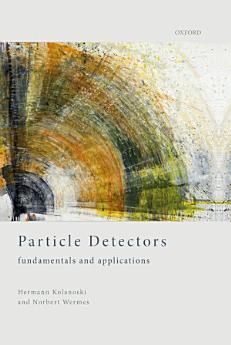Particle Detectors: Fundamentals and Applications
Jun 2020 · Oxford University Press
Ebook
950
Pages
family_home
Eligible
info
reportRatings and reviews aren’t verified Learn More
About this ebook
This book describes the fundamentals of particle detectors as well as their applications. Detector development is an important part of nuclear, particle and astroparticle physics, and through its applications in radiation imaging, it paves the way for advancements in the biomedical and materials sciences. Knowledge in detector physics is one of the required skills of an experimental physicist in these fields. The breadth of knowledge required for detector development comprises many areas of physics and technology, starting from interactions of particles with matter, gas- and solid-state physics, over charge transport and signal development, to elements of microelectronics. The book's aim is to describe the fundamentals of detectors and their different variants and implementations as clearly as possible and as deeply as needed for a thorough understanding. While this comprehensive opus contains all the materials taught in experimental particle physics lectures or modules addressing detector physics at the Master's level, it also goes well beyond these basic requirements. This is an essential text for students who want to deepen their knowledge in this field. It is also a highly useful guide for lecturers and scientists looking for a starting point for detector development work.
About the author
Hermann Kolanoski is Emeritus Professor of Physics at the Humboldt University Berlin and at the research centre DESY (Zeuthen). After having received his doctoral degree in Bonn he worked at universities in Stanford, Bonn and Dortmund before joining Humboldt University in 1995. His field of expertise is experimental particle and astroparticle physics. He currently participates in research with the IceCube Observatory at the South Pole and ATLAS at CERN. His work in detector development includes gaseous wire chambers, calorimeters, photon detectors, and trigger electronics as well as applications in medical physics. Norbert Wermes is Professor of Physics at the University of Bonn. His field of research is experimental particle physics and detector physics. He has conducted research with experiments at the particle physics research centres DESY (Hamburg), SLAC (Stanford), Fermilab (Chicago), KEK (Tsukuba), and CERN (Geneva). After graduating with a PhD in physics from the University of Bonn, he was a postdoc at Stanford University, and a CERN staff scientist. In 1989 he became a professor at the University of Heidelberg, before returning to Bonn in 1992. With his group, he currently carries out research with the experiments ATLAS (CERN) and Belle II (KEK). In detector physics, his focus is on semiconductor pixel detectors and microelectronics.
Rate this ebook
Tell us what you think.
Reading information
Smartphones and tablets
Install the Google Play Books app for Android and iPad/iPhone. It syncs automatically with your account and allows you to read online or offline wherever you are.
Laptops and computers
You can listen to audiobooks purchased on Google Play using your computer's web browser.
eReaders and other devices
To read on e-ink devices like Kobo eReaders, you'll need to download a file and transfer it to your device. Follow the detailed Help Center instructions to transfer the files to supported eReaders.




